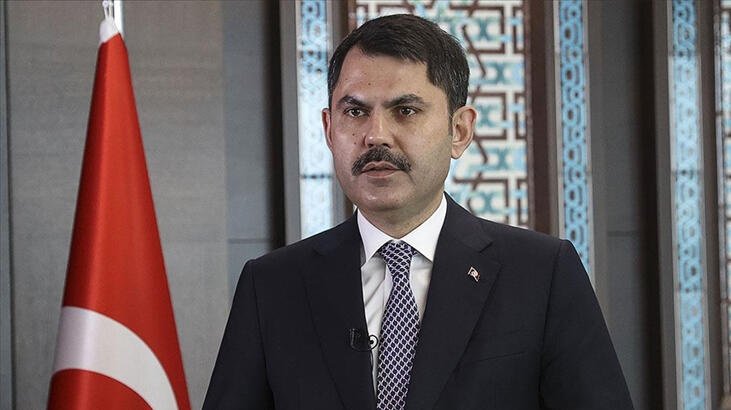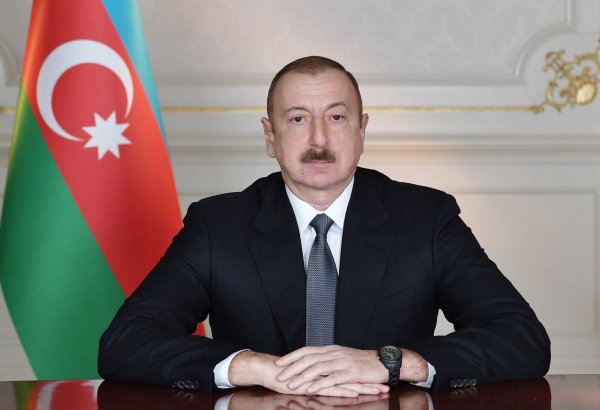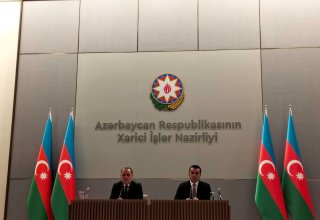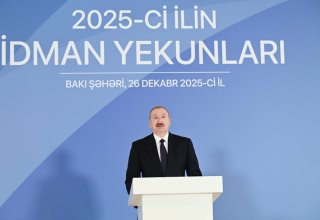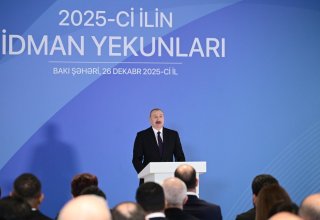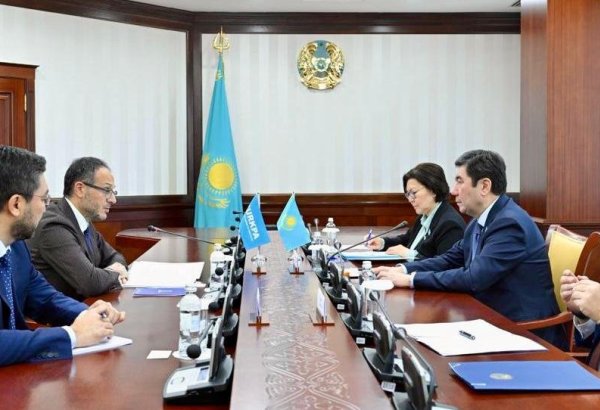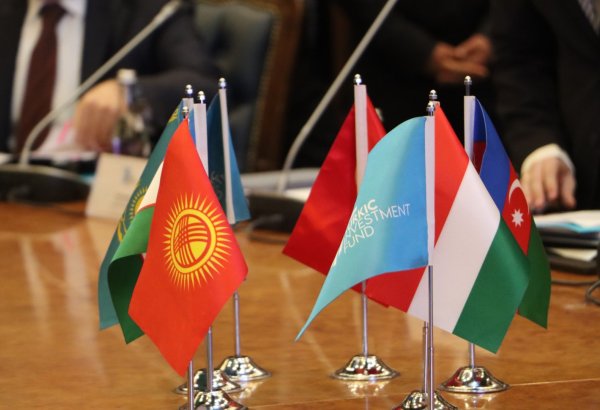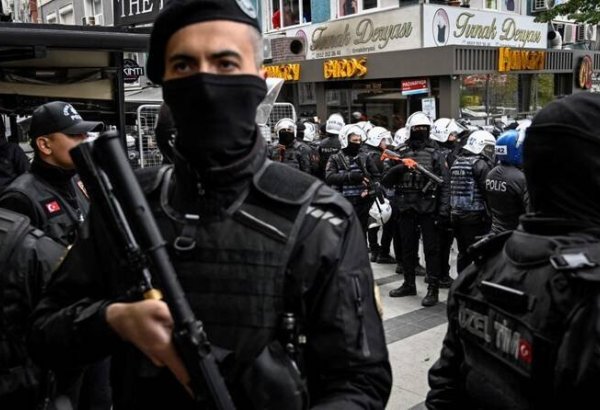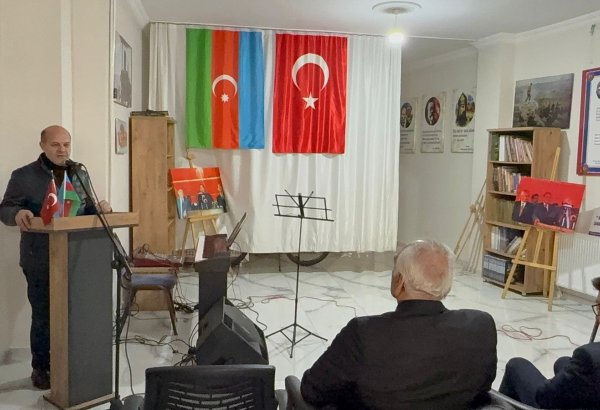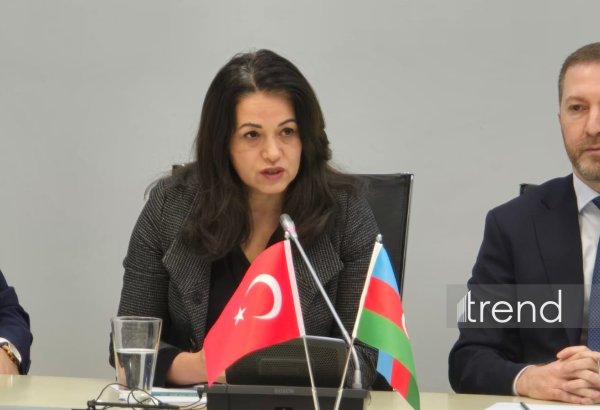Baku, TurkicWorld:
Murat Kurum boasted his record in improving cities during his tenure as a minister as he hopes to take back the municipality of Istanbul from the reign of the opposition Republican People’s Party (CHP), TurkicWorld reports citing Daily Sabah.
Kurum spoke to reporters hours after he was announced by President Recep Tayyip Erdoğan as the candidate for ruling Justice and Development Party (AK Party) for the mayoralty of the city in the upcoming municipal elections.
On Monday, Kurum launched his election campaign by paying respects to two historic names associated with Istanbul, as well as the late Kadir Topbaş, the last AK Party mayor of the city. Kurum visited the tombs of Mehmed II, better known as Mehmed the Conqueror, the Ottoman sultan who cemented the ongoing Turkish reign of the city by conquest in 1453, and Eyüp Sultan or Abu Ayyub Al-Ansari, a companion of the Prophet Muhammad who was buried in a district named after him.
“By God’s will, the interregnum will end in Istanbul on the evening of March 31 (the election date) and an era of resurrection will begin,” Kurum told journalists at the AK Party’s Istanbul branch offices on Sunday evening.
The former minister of environment, urban planning and climate change is endorsed by the People’s Alliance which, along with the AK Party, includes its main ally Nationalist Movement Party (MHP) and other smaller parties in the opposition. He will compete against Ekrem Imamoğlu, the incumbent mayor from the CHP who won the last election in 2019, ending the AK Party’s lengthy rule in Türkiye’s most populated city.
Kurum said they were working on a 100-day and one-year Istanbul Emergency Action Plan he’d unveil soon.
The former minister, who was elected lawmaker in last May’s general elections, cited his tenure as an employee and later director of the country’s major housing agencies Housing Development Administration (TOKI) and Emlak Konut for about two decades, said this experience contributed to his term as minister, an office he took in 2018.
“We served the nation, from Istanbul and beyond. We built hundreds of public gardens (large urban parks) and launched urban transformation projects. We constructed hundreds of thousands of residences for our citizens affected by disasters. I am proud of my 25 years of experience and our signature in all 39 districts of Istanbul,” he said.
Kurum noted that they initiated urban transformation projects in several districts of Istanbul, from Gaziosmanpaşa to Güngören, “despite obstacles,” referring to critics, mainly the opposition, who filed lawsuits to stop the projects. Urban transformation is an ambitious nationwide project conceived by the AK Party governments to replace old buildings not resistant to disasters with new ones. It provides incentives to owners of the buildings for demolition and reconstruction.
“This is just the beginning of what we are about to do. It is far more than what the current administration of Istanbul has done in the past five years,” he said.
Kurum pledged that they would work to eliminate all buildings at risk of collapse in a potential disaster. “We will also work to end the current troubles in transportation in Istanbul, to make the city safer again. Our only rival is negligence toward this city, a mindset of false perception,” he said, in a pointed reference to Imamoğlu’s rule.
Critics accuse Imamoğlu of a string of failures from lingering problems in mass transportation due to vehicles not properly maintained, leading to delays in bus schedules. He is also under fire for not helming the crisis management in the city at times of chaos, such as a massive snowstorm in the past years and floods.
At the heart of this dissatisfaction with the Imamoğlu administration lies a key issue: public transportation.
Traffic congestion has become a major source of discontent, with residents facing prolonged commutes and seeking practical solutions to ease daily travel. The existing public transportation network, designed to alleviate congestion, is perceived as falling short of meeting the needs of Istanbul's expanding population.
Complaints about overcrowded buses, metrobuses and metro lines are common, contributing to discomfort and delays for commuters. The perceived lack of reliable services has raised questions about the city administration's ability to address this fundamental aspect of urban life.
Accessibility issues add to the problem, with some neighborhoods feeling underserved and residents expressing frustration over limited transportation options, particularly in outlying areas. The unequal distribution of service quality has fueled a sense of inequality and highlighted the need for a more comprehensive and inclusive public transportation strategy.
“We will always be with Istanbul. We won’t just drop by at times,” Kurum said, in another jab at Imamoğlu who stirred up controversy by touring other cities at times of crisis.
Istanbul, as the country's largest city and economic hub, stands as a focal point in Türkiye's political landscape, acting as a stronghold for various political movements. The outcome of the elections is more than the appointment of a mayor; it has the potential to either reinforce existing political dynamics or signify a shift in the broader political balance. The mayor of Istanbul holds a position of considerable influence, impacting local governance and policies with resonance on the national stage.
President Erdoğan announced candidates for 26 cities on Sunday and is expected to announce candidates for the capital Ankara and most of the other cities on Jan. 15.








